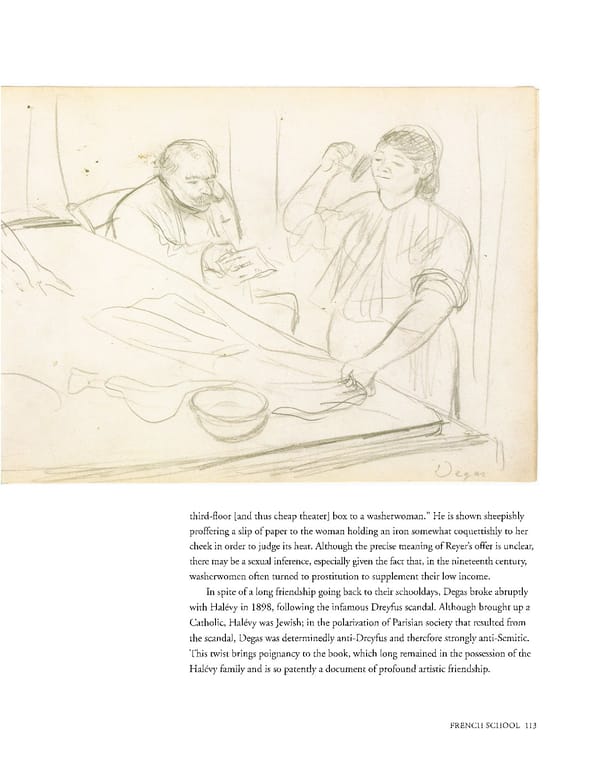thirdfloor [and thus cheap theater] box to a washerwoman." He is shown sheepishly proffering a slip of paper to the woman holding an iron somewhat coquettishly to her cheek in order to judge its heat. Although the precise meaning of Reyer's offer is unclear, there may be a sexual inference, especially given the fact that, in the nineteenth century, washerwomen often turned to prostitution to supplement their low income. In spite of a long friendship going back to their schooldays, Degas broke abruptly with Halevy in 1898, following the infamous Dreyfus scandal. Although brought up a Catholic, Halevy was Jewish; in the polarization of Parisian society that resulted from the scandal, Degas was determinedly antiDreyfus and therefore strongly antiSemitic. This twist brings poignancy to the book, which long remained in the possession of the Halevy family and is so patently a document of profound artistic friendship. FRENCH SCHOOL 113
 Masterpieces of the Getty Museum: Drawings Page 113 Page 115
Masterpieces of the Getty Museum: Drawings Page 113 Page 115